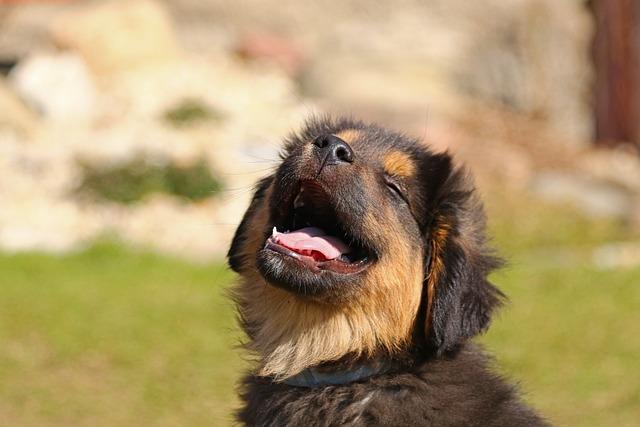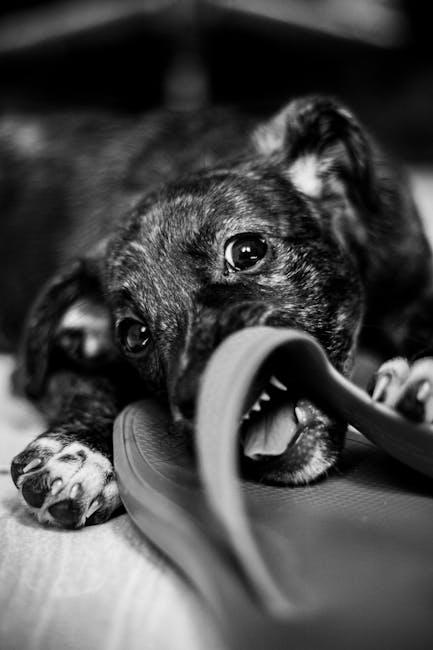Welcoming a new puppy into your home is an exciting and joyful experience, filled with wagging tails and playful antics. However, along with the cuddles and adorable moments, puppies often bring a set of challenges that can test even the most patient pet owners. From incessant chewing to the occasional potty accident, these common behavior issues can sometimes overshadow the delight of having a new furry friend. But fear not! With a blend of patience, understanding, and a few practical strategies, you can guide your puppy towards becoming a well-behaved and happy member of your family. In this article, we’ll explore effective and compassionate techniques to address typical puppy behavior problems, ensuring that both you and your pup enjoy a harmonious start to your life together.
Understanding Your Puppys World
Stepping into your puppy’s world means embracing their boundless curiosity and energy while understanding the reasons behind some of their more perplexing behaviors. Puppies are naturally inclined to explore and learn, which sometimes leads to behaviors like chewing, nipping, or excessive barking. Chewing is often a result of teething or exploring their environment. Providing a variety of chew toys can help redirect this behavior and save your furniture. If your puppy is prone to nipping, it’s essential to teach them bite inhibition. Gentle, consistent training can guide them to understand that biting hurts and is not acceptable.
- Chewing: Offer durable chew toys and keep tempting items out of reach.
- Nipping: Use positive reinforcement to encourage gentle play.
- Excessive Barking: Identify triggers and work on desensitization techniques.
Understanding that barking is a form of communication can help address it effectively. Observe what triggers the barking—is it strangers, other animals, or boredom? Once you know the cause, you can work on desensitization or provide engaging activities to keep them occupied. Remember, patience and consistency are key. By stepping into your puppy’s world with empathy and guidance, you’ll foster a well-behaved and happy companion.

Guiding Your Puppy Through Teething Troubles
Teething can be a challenging time for both you and your puppy. As their new teeth emerge, your little furball might experience discomfort, leading to an urge to chew on everything in sight. To ease their pain and protect your belongings, consider providing them with safe chew toys. Opt for durable rubber toys or frozen treats that can soothe their gums. Avoid giving them anything too hard, which might damage their developing teeth.
In addition to providing the right toys, maintaining a consistent training routine is crucial. Gently redirect your puppy’s chewing from forbidden objects to their designated toys. Be patient and persistent, offering praise and treats when they make the right choice. You might also want to puppy-proof your home by keeping shoes, cables, and other tempting items out of reach. Remember, this phase is temporary, and with the right guidance, your puppy will grow out of it with healthier habits.
- Provide safe, durable chew toys
- Consider frozen treats for gum relief
- Redirect chewing behavior consistently
- Puppy-proof your home environment

Nurturing Positive Socialization Experiences
Creating a nurturing environment for your puppy’s socialization is key to their development into a well-adjusted adult dog. Begin with gentle introductions to new people, pets, and environments. It’s important to ensure that these experiences are positive and free from overwhelming stimuli. Monitor their body language closely; if your puppy appears anxious or scared, it’s best to retreat to a familiar setting. Gradually increasing exposure at their own pace can prevent any potential social anxiety.
- Encourage interactions with a variety of people, including children and the elderly, to foster adaptability.
- Organize playdates with other vaccinated puppies or friendly adult dogs to promote healthy canine friendships.
- Introduce different environments such as parks, pet-friendly stores, or even quiet city streets to build their confidence.
Remember, your calm and reassuring presence can greatly influence how your puppy perceives new experiences. By consistently rewarding positive interactions with treats and praise, you’ll help instill a lifelong love of meeting new friends and exploring new places.

Redirecting Unwanted Chewing Behaviors
One of the most common issues puppy parents face is dealing with those sharp little teeth sinking into everything they shouldn’t. Puppies explore the world through their mouths, so it’s crucial to guide them towards more appropriate chewing habits. Start by providing a variety of chew toys that are both safe and engaging. Choose toys with different textures and flavors to keep your pup interested and occupied.
- Rotate toys regularly to maintain novelty.
- Praise your puppy whenever they choose a toy over your favorite shoes.
- Supervise playtime to prevent the development of unwanted habits.
Should your puppy begin to gnaw on something off-limits, calmly redirect their attention to an acceptable item. Consistency is key—each time they chew on an appropriate object, reward them with affection or a small treat. This positive reinforcement helps them associate their good behavior with a rewarding outcome, ensuring a smoother transition away from those pesky unwanted chewing behaviors.

